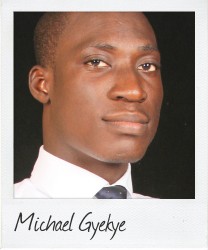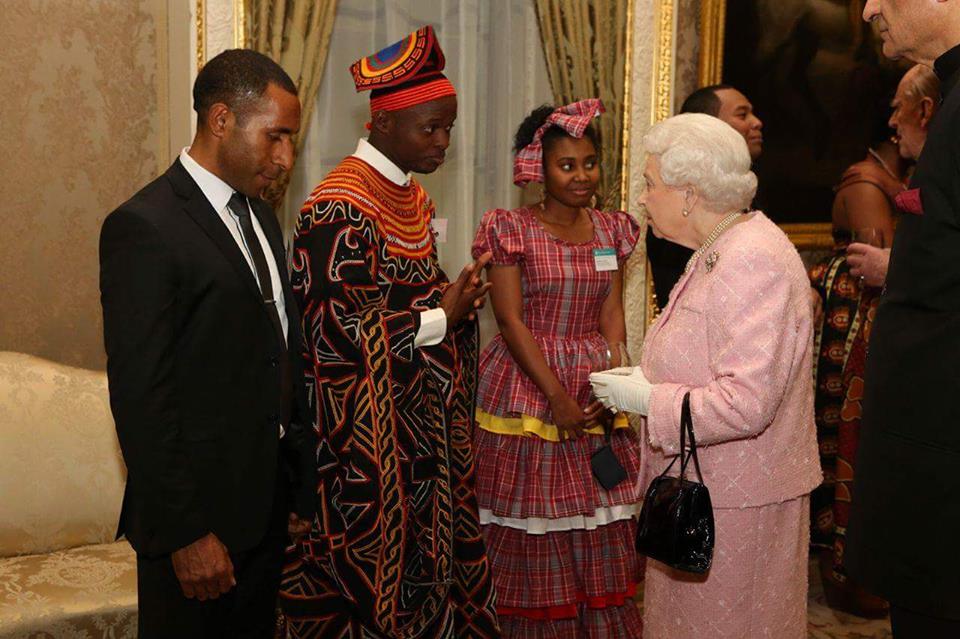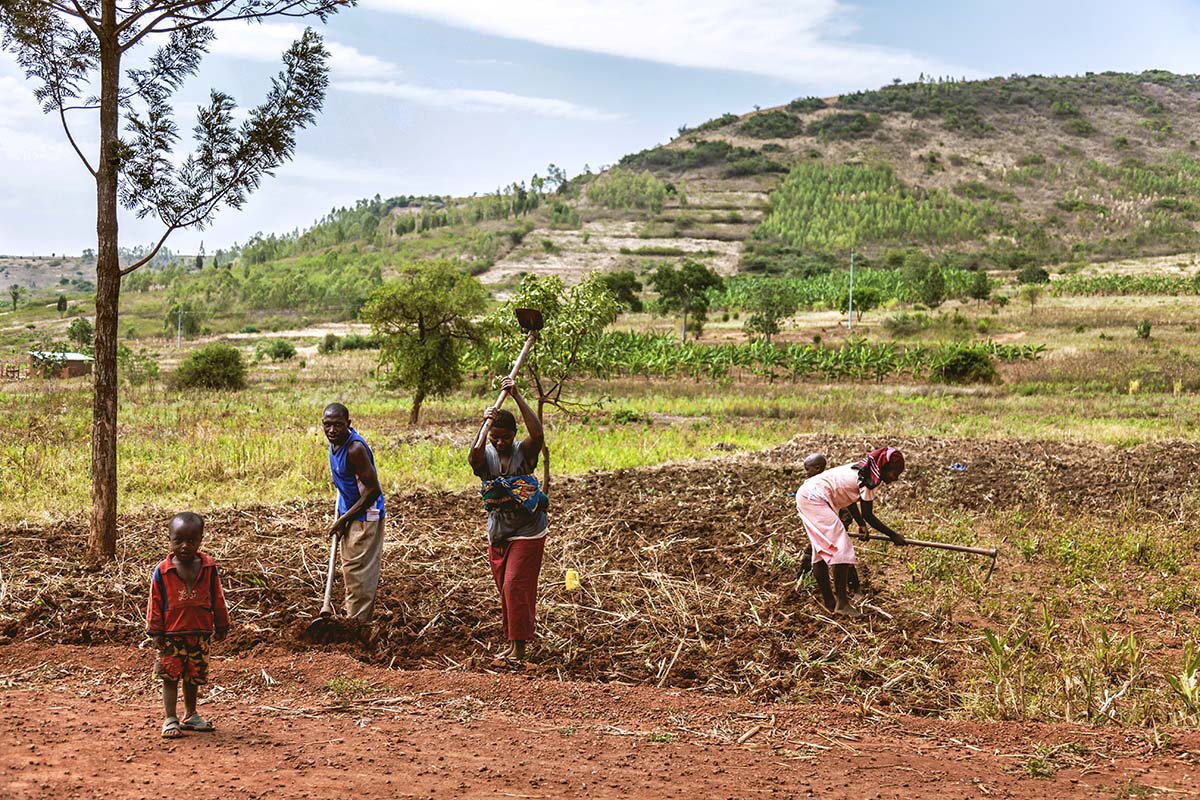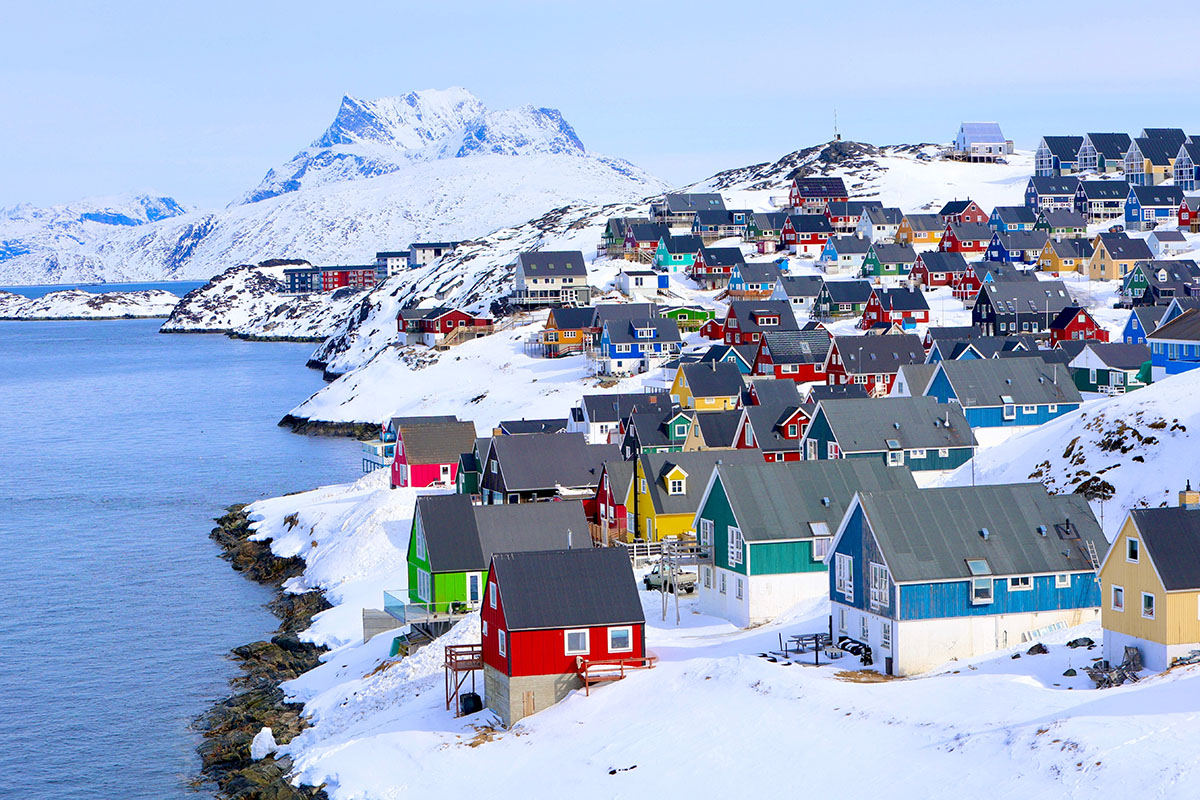“Young Person of the Year: a civil path to peace”
May 13 Achaleke Christian Leke, now 26, a Youth Peace Ambassador from Cameroon, was named the Commonwealth Young Person of the Year at the Commonwealth Youth Awards for Excellence in Development Work 2016, held in London in March. Commonwealth Correspondent Michael Gyekye, 23, from Ghana, conducted a written interview with the recipient of the prestigious honour.
Achaleke Christian Leke, now 26, a Youth Peace Ambassador from Cameroon, was named the Commonwealth Young Person of the Year at the Commonwealth Youth Awards for Excellence in Development Work 2016, held in London in March. Commonwealth Correspondent Michael Gyekye, 23, from Ghana, conducted a written interview with the recipient of the prestigious honour.
Michael: Can you tell us something about yourself?
Achaleke: I was born in 1990 in Fiango Kumba, Cameroon, a town popular for youth involvement in violence and extremist tendencies like jungle justice, kidnapping, civil strikes, gangs, socio-cultural conflicts, armed robbery and street fighting. Even though I was once a victim of radicalisation and violence, today, I am transformed from an agent of violence into an ambassador of peace and change.
My story and achievements as a trainer, project coordinator, mentor, coach and policy drafter and innovator, in the domain of peace, conflict prevention and security, are my contributions to help inspire the promotion of peace by young people across the world.
Michael: How did you react to your selection as the Commonwealth Young Person of the Year and how are you coping with the euphoria?
Achaleke: I must say it was the most exciting thing I have had in my career. Meeting the Queen days earlier already sparked so much in my mind. When my name was read, tears slowly streamed down my cheeks. It was unbelievable. I felt as if I should jump and touch the sky. All I could hear was people screaming in the ceremony room.
Since then, so much has changed. From being interviewed on BBC World News, Focus on Africa to meeting young people and other personalities, I told myself God is great. Everyday, my number of friends on social media increases. I know I have the responsibility to defend this honour and work harder. Working hard is what I do, but I must confess, with this award, there is much more to do. This award has opened a bigger door for me to advocate for youth empowerment, inclusion and participation in development, peace building and the fight against violent extremism.
Michael: What have been some of the notable milestones of your organization, Local Youth Corner Cameroon? Is it confronting any significant challenges? Where do you expect to see the organization in the next five years?
Achaleke: As the National Coordinator, I worked tirelessly to build my team and continue with the works of my organization. My first approach was to bring innovation and creativity into our works. In 2014, we developed a documentary on youth radicalisation and child soldiers for youth audiences in Cameroon and across the world. To date, the documentary has been watched by over 2000 young people both online and offline.
This concept came at a time when my country was hit by violent extremist groups. Later in the same year, with little to no finance, we developed a training manual for young people in peace-building and conflict prevention. We have trained over 5000 young people with this manual. From 2014 to the present, our organization has executed and co-organized over 100 youth empowerment projects in the areas of peace-building, quality education, human rights, gender-based violence, career orientation, HIV/AIDS, governance and accountability, among others.
In these times when funding is hard to come by, our organization has however been able to go this far, with little to no funding. We have been able to use our personal funds and also traditionally fundraised for some of our projects.
Our organization has also been helping to shape important youth issues through contributions to important programs such as the local consultation in Cameroon on the SDGs, the development of the Amman Declaration on Youth Peace and Security, the Youth Action Agenda Against Violent Extremism and Promotion of Peace, and the advocacy for the adoption of the United Nations Security Council Resolution 2250: Youth, Peace and Security.
In the next five years, I see my organization as one of the leading youth organizations in the world, promoting youth participation in peace-building and the development process. We envisage our impact to go beyond two million young people.
Michael: As a peace activist in Africa, what do you regard as the present major challenges to peace in Africa? Is enough being done on the continent to counter such threats?
Achaleke: I think in Africa, a major challenge to peace are the socio-cultural and political challenges faced by young people. The existence of these challenges, like exclusion from governance, unemployment, poverty, lack of quality education, negative cultural practices and many others, contribute to the radicalisation of young people. As a result, young people are trapped in a situation where they find themselves helpless. Violent extremist groups leverage on this to recruit and influence young people to engage in violence and violent extremist activities.
I think the continent is not doing enough. African countries are emphasising on countering rather than working hard to prevent. By this, I mean they spend too much money and resources to fight rather than solve the basic challenges that foster the radicalisation of young people. They have neglected the role of civil societies and the civil path to peace.
Instead, much money is spent on militarization and force. I must say violence begets violence. Just as recommended by the UN Security Council Resolution 2250, our African states and the African Union must consider investing in young people and engaging young people and civil societies in the peace building process.
Michael: In the short to medium term, what practical measures would you like taken to reduce the vulnerability of African youth to exploitation as agents of violent extremism and other anti-peace activities on the continent?
Achaleke: I think investment should be done in civil societies and support offered young people who are working with fellow young people to change mentalities and provide decent alternative means of survival or livelihood for the youth. African governments must work to promote good governance, youth employment, quality and accessible education, social reinsertion and also fight all forms of discrimination. All of these will promote a favourable environment for young people to lead decent lifestyles.
Michael: As a role model to youth across the Commonwealth, what advice do you have for young people, particularly those working on similar community improvement projects?
Achaleke: I know it is very challenging to work as a volunteer, especially in Africa, where poverty is a major challenge. Our passion should be our drive but not money. From a local community just like the many others also engaged in promoting development, I have been able to make a humble contribution which has empowered many young people. You can do better than me. We need to trust in our mentors, and remember you need as many mentors as you can.
Team work is a very important aspect of success in civil society work. Equally, humility, patience, and confidence are the key qualities you must keep. We must try as much as possible to hold on to our leadership qualities. We should not expect to do so much to bring change; every one young person you are able to empower is equal to a generation to come. For a Christian like me, I must also say, one must trust in God.
Photo credit: Commonwealth Secretariat
…………………………………………………………………………………………………………………
About me: I aspire to become a legal practitioner and scholar. I hope to lead an international law firm and lecture in a world-class law school in the future. I love to read, write, teach and travel. I am fascinated by local and international developments in politics, business, technology, sports and culture.
I am currently a final-year undergraduate student of political studies at the Kwame Nkrumah University of Science and Technology in Kumasi, Ghana. I will finish school in May this year and graduate in June.
Reach me on Facebook at Michael Adu Gyekye
…………………………………………………………………………………………………………………
Opinions expressed in this article are those of the author and do not necessarily represent the views of the Commonwealth Youth Programme. Articles are published in a spirit of dialogue, respect and understanding. If you disagree, why not submit a response?
To learn more about becoming a Commonwealth Correspondent please visit: http://www.yourcommonwealth.org/submit-articles/
…………………………………………………………………………………………………………………




